Episodes

Sunday Jul 31, 2022
Ep 142 - Matt Swaim: Symbols and Substance, in Faith and Online
Sunday Jul 31, 2022
Sunday Jul 31, 2022
-
Matt Swaim is the co-host of the Son Rise Morning Show, heard Monday through Friday 6-8 am on hundreds of stations in the nationwide EWTN Catholic radio network. He is also the outreach manager for the Coming Home Network, an apostolate that helps non-Catholic Christians who desire to learn more about, and consider entrance into, the Catholic Church. He co-hosts a podcast, “On the Journey,” for that organization.
-
Paul and Bill talked with Matt largely about the challenges in understanding, and then catechizing and evangelizing about, the Real Presence of Christ’s body and blood, soul and divinity. It is this Eucharist, into which Catholics believe the bread and wine at Mass have been transubstantiated.
-
Bill also has gotten to know Matt by being interviewed on the Son Rise show, and the two share an interest in media criticism on communication about religion. More generally, they discuss communication which uses symbolic language and sometimes loses touch with important truths.
-
Matt has written a book that deals with these topics. Prayer in the Digital Age, was published by Ligouri Press in 2011. Bill has written a book on related topics. When Headlines Hurt: Do We Have a Prayer? was published in 2018.
-
The topics of the Eucharistic and symbolism vs. the Real Presence became especially timely this year when the US Conference of Catholic Bishops initiated a “National Eucharistic Revival.” The bishops were reacting, in part, to national survey findings that only about one-third of American Catholics believe the Eucharist is the real body and blood of Jesus Christ, rather than a symbol. Survey findings came from the Pew Research Center, and Bill wrote about those findings recently for The Tablet, the newspaper of the Diocese of Brooklyn, NY.
-
Matt made reference to the Latin maxim, Lex Orandi, Lex Credendi. He also referred to the “milkshake duck” meme and how it ties in with digital media culture. This savvy media analyst also made references to The Dark Knight and to the Hollywood films constituting “the Marvel universe” of comic book superheroes.
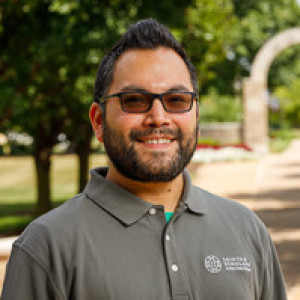
Thursday Jun 30, 2022
Ep 141 - Louis Albarran and the Faith of Real People
Thursday Jun 30, 2022
Thursday Jun 30, 2022
- Paul and Bill spoke with Louis Albarran, associate professor of theology at Holy Cross College in Notre Dame, IN. Albarran holds a master’s degree and a Ph.D. from the University of Dayton, and he specializes in the connection of religion, culture, and the physicality of devotional practices, with a focus on the Latino Catholic culture.
- Albarran spoke of the story of Our Lady of Guadalupe, as told by the Aztec people in their own language. The name of this narrative is Nican Mopohua.
- Albarran spoke of the Dayton school of thought regarding the meaning of Catholic devotions for culture. He referred to Thank You, St. Jude, written by Robert Orsi. [Paul cannot help adding a reference to St. Jude by Brian Setzer.]
- Currently reading: Making Culture by Andy Crouch.
- The annual “Saints and Scholars” summer program for high school students on the Holy Cross College campus is directed by Albarran.
- Peter Kreeft and Christopher Baglow offer notable perspectives on the compatibility of science and religion.
- Holy Cross College’s Moreau College Initiative grants degrees to prisoners.
- William Cavanaugh wrote about the wars of religion and the rise of the nation-state. Peter Kreeft wrote a condensed Catholic catechism. Kenneth Miller wrote Finding Darwin’s God. Aldous Huxley wrote Brave New World.
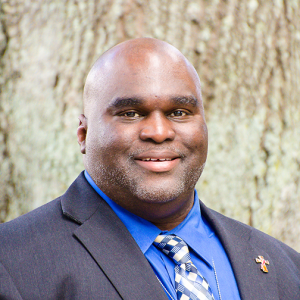
Monday Jan 31, 2022
Ep 136 - Deacon Harold: Life Rich in Reality, Reality Rich in Life
Monday Jan 31, 2022
Monday Jan 31, 2022
Deacon Harold Burke-Sivers (deaconharold.com) is a Catholic deacon and public speaker. Bill and I had the privilege of interviewing him earlier this month.
-
Deacon Harold Burke-Sivers is one of the most incisive and authentic Catholic speakers and authors who have arisen to serve the New Evangelization, including an outreach to the younger generations who hunger to combine secular reality and meaningful Church values.
-
Paul and Bill know Deacon Harold through our connections to the University of Notre Dame. But the Deacon’s reputation has spread internationally; as a scholar and a presenter nicknamed “the Dynamic Deacon,” he offers large groups from many backgrounds fresh resources for spiritual renewal, including the refreshment of male spirituality. This topic is masterfully addressed in his book, Behold the Man.
-
Deacon Harold has appeared frequently on the EWTN Catholic radio and television networks. Recently, he took part in a discussion on racism and Catholic responses in an episode of the “Franciscan University Presents” program.
-
A number of other books authored by Deacon Burke-Sivers over the years can be found here.
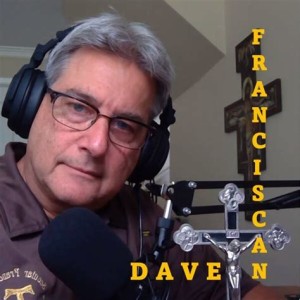
Monday Nov 22, 2021
Ep 134 - Bill on Journalism and Truth with Franciscan Dave
Monday Nov 22, 2021
Monday Nov 22, 2021
David Seitz, OFS, is a long-time professed member of the Secular Franciscan Order who holds an M.A. in theology from Sacred Heart Seminary in Detroit. He has written a book, available on line, called Come Let Us Worship: Reflections on the Words and Prayers of the Mass. He produces podcasts, videos, blogs, and speaks publicly, offering reflection for spiritual growth based on the life and works of St. Francis of Assisi. Find him at tauministries.com and, on YouTube, look for his nickname, Franciscan Dave.
Bill, also a Secular Franciscan, recently appeared on Dave's podcast, and I spoke with Bill about that conversation regarding journalism and virtuous communication. We discuss whether missionaries and scientists are also journalists and the spiritual value of seeking and spreading truth. Be sure to find their original conversation at Dave's site.
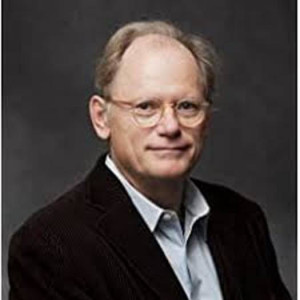
Monday Apr 12, 2021
Monday Apr 12, 2021
Bill and I are excited to bring you an episode about the archeology and secular history of the time when Jesus was born, grew up, and preached. Fuller notes to come on our episode with Dr. Jean-Pierre Isbouts, author of In the Footsteps of Jesus.
- Jean-Pierre Isbouts, Ph.D., is a best-selling author, historian, and filmmaker who has invested decades of work in to understand and explain the Biblical foundations of Christian faith from an interdisciplinary perspective. His career as a humanities scholar began with his doctoral degree from the University of Leiden in the Netherlands. He is a professor of human development at Fielding Graduate University in Santa Barbara, CA.
- Isbouts’s latest book, published in 2017 by National Geographic, is In the Footsteps of Jesus: A Chronicle of His Life and the Origins of Christianity. In addition to reading his books, you can take his course, “The History and Archaeology of the Bible” through the Great Courses library of products. He has made several notable films, and he recently has posted a series of videos embodying his new book, available by searching his name on Vimeo.
- Isbouts talked with Paul and Bill about key findings that help to increase public understanding of the historical context of Jesus’ life and how he loves to deepen that understanding through visual images of lands where Jesus taught, plus explorations in maps, art, archaeology, and more. His book features a beautiful collection of images.
- The discussion with TSSM looks into Jesus’ background, which is much more extensive than the typical label of “carpenter.” He notes that Jesus’ role in rebuilding the city of Sepphoris presaged his message of action and solidarity aimed to build the Kingdom of God. The times during which he taught on earth were filled with social and economic chaos, when the rule of Herod and his son decimated the economy of Galilee and displaced thousands of peasants in severe poverty.
- These historic times, Dr. Isbouts points out, resonate with readers today during a period of pandemic and polarization. We need to hear again Jesus’ call to come together as citizens of the Kingdom to practice basic principles of the Torah—compassion, social justice, and total faith in God as Father. Dr. Isbouts himself says his studies have drawn him closer to the figure of Jesus and “what fired his ministry.” The application of various fields of scholarship helps to tear down walls that many people today see dividing the worlds of science and faith.
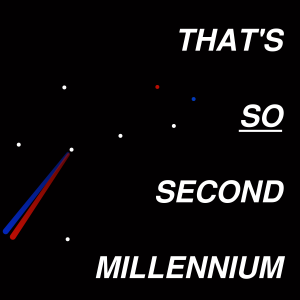
Monday Mar 22, 2021
Episode 122 - Original Sin and Mental Unhealth
Monday Mar 22, 2021
Monday Mar 22, 2021
Paul and Bill discuss some of the ways in which human minds go wrong. Paul wonders aloud whether the state of spiritual disconnection called "original sin" is specifically manifested in the ways parents relate, or don't relate, to children and the problems that follow from that for the rest of our lives. We discuss Henri Nouwen (a little) and Eckhart Tolle (a little more) and his ideas on how enlightenment has cropped up here and there throughout history but gets suffocated by social conformism.
- Paul and Bill discussed a number of resources for pondering the nature of sin and how it affects our lives—as well as how people act based on their perceptions of sin in themselves and others. Without the Church’s wisdom and reliance on Christ’s grace, behaviors based on a misunderstanding or dismissal of sinfulness can distort our lives as individuals, in our minds and hearts, as well as our lives in society.
- The co-hosts concluded that we need to invest time throughout our lives to discern how sin—and a need for forgiveness and grace which is poorly grasped in secular society—in integrated in our mental and spiritual health. We cannot just set aside the matter of original sin and our ongoing inclination toward evil. We tapped into the Catechism of the Catholic Church, especially the paragraphs around #400 and beyond, for guidance to sort this out.
- Such guidance is important in countless cases, such as reflection on Jesus’ teaching on separating the sheep and the goats in Matthew 25.
- We discussed The Blank Slate by Steven Pinker.
- Paul spoke of being pointed toward books by Henry Nouwen and commentary by Eckhart Tolle, a popular proponent of new-age syncretism with echoes of Christianity and Buddhism. He also spoke of exploring life-solutions propounded in EMDR therapy.
- He mentioned having found useful insights when exploring that therapy through Francine Shapiro’s Getting Past Your Past.

Monday Jan 11, 2021
Episode 117 - Aida Ramos on Debt and Spending
Monday Jan 11, 2021
Monday Jan 11, 2021
- Aida Ramos, Ph.D., is an associate professor of economics at the University of Dallas. She returns to TSSM, in this episode recorded early in the week of January 4, 2021, to discuss Catholic perspectives on United States policy efforts to stimulate the economy.
- During the discussion, Bill recalled a class he took at the Princeton School of Public and International Affairs that outlined a rigorous process of federal budget management. It included multiple annual authorization and appropriations bills covering various agencies and governmental functions. He could not remember immediately the name or previous budget-leadership role of his professor from those years as a student, but he commented in general that, over time, the discipline planned for maintaining quality control over program specifics via this legislative routine gave way to habits of less regular and detailed Congressional oversight on specifics of spending.
- Ramos noted that the Citizens United case decided by the US Supreme Court in 2010 had a major effect on campaign finance which in turn greatly increased the influence of corporate lobbyists over Congressional decision-making and thereby contributed to changes in legislative practices regarding federal budget management. The multi-trillion-dollar spending bill passed by Congress in late 2020 offers examples of how management rigors, at least as they maintain a focus on common-good and fiscal-responsibility duties, changed in ways that lessened Congressional and White House priorities integrating social justice into year-end spending plans; concerns about the primacy of addressing broad, basic needs of the population, as described by goals of solidarity and subsidiarity in Catholic social thought, have not been served by enactment of policies like tax deductions for the so-called “three-martini lunch.” That policy, which economists judged to be primarily a benefit for the wealthy, favors spending practices seen in corporate and lobbying circles, Ramos said.
- The need for responsible approaches to economic management within government is an area of profound moral concern that has arisen consistently present and past policy-making. Different policy actions, including the Covid-19 relief legislation, which is separate from the aforementioned multi-agency spending bill, represent differing approaches to deficit spending in the federal budget. Deficit spending can be justified during an economic crisis if it is limited and focused fairly on necessary remedies and investments. But the US has run up deficits in various years when they were not necessary, and the national debt has exploded. The need to pay interest on the national debt to investors squeezes out spending that could go toward meeting urgent needs such as food and poverty relief in the general population. This again raises concerns through the lens of Catholic values about human dignity and the preferential option for the poor.
- The major tax cut passed during the Trump administration had components that added hugely, unnecessarily, and unfairly to the deficit, Prof. Ramos said. A morally informed discussion about taxation has to be conducted among Americans to help influence government decision-making in legislation like this.
- An absence of responsive and responsible fiscal policy, legislated by Congress, has required more action by the Federal Reserve in recent years, taking the form of quantitative easing. This is monetary policy, whose technicalities can stir misguided fears among people. One bottom line in the different forms of policy-making is the need to serve the common good and human dignity; actions which support the economic stability and participation of families and households at the local level are an example of the Catholic call to respect subsidiarity as a means toward solidarity, Prof. Ramos said.
- Pope Francis has been outspoken about the need for populations to respect Catholic social values like these in policies and relationships widely and consistently. Certain budgetary responses to Covid-19 relief for people are in keeping with the Pope’s call. The application of a moral lens to budget management that meets public needs is nothing new; indeed, the field of political economy arose out of moral philosophy, a connection personified by Adam Smith, according to Prof. Ramos.

Monday Dec 28, 2020
Episode 116 - Paying Attention or Paying a Price
Monday Dec 28, 2020
Monday Dec 28, 2020
In this last episode of 2020, Bill and I discuss how attention, focus, and distraction are shaping us and being engineered in our media-saturated culture. We can't pay attention to everything, and in this environment, it seems that censorship is becoming a politically acceptable option for tech companies, as the Trump election corruption allegations became forbidden topics on many platforms.
- Co-hosts Paul and Bill agreed that the film—and Broadway play—called “Network” shows foresight in its reflections about human dignity and corporate values in competition on an individual and global scale.
- Pope Damasus changed the dominant language of the (Roman) Catholic Church from Greek to Latin (what would have been called the vernacular language in that time and place).
- John Stuart Mill wrote On Liberty and helped to advance the authentically liberal project of freeing up human creativity and truth-seeking in the marketplace of ideas.
- Many U.S. citizens (and people in general) are reverting to tendencies toward self-centeredness in human communication and civil society—tendencies against which common-good principles of the United States have served as societal guard-rails with remarkable success during much of our history.
- The self-centeredness runs counter, too, to the zeal for connection-making which drives many messages from Pope Francis. By the way, that drive is a factor leading to the long length of the Pope’s encyclical, like his most recent document, Fratelli Tutti.
- Communication (and communities like those in social media) tend toward exclusion of unwanted information, rather than a greater spirit of inclusion.
- The Distracted Mind, recommended by Paul, is an academic book that is timely reading in what Bill calls this media world of “information inflation.” That inflation leads toward a purposeful or kneejerk limitation on attention—one cannot consume everything from today’s firehose of data!—and even what Paul described as weaponization of attentiveness.
- To the degree that a sense of exceptionalism guides us, history may justify some adoption of that in our thinking about the principles and aspirations of the United States. But it can be risky if it shuts off our thinking about, or respect for, the uniqueness and dignity that individuals around the world bring to the idea marketplace. We can’t reduce our thinking to dismissive judgments against them as merely packages of entirely good or bad ideas.
- Pope Francis writes for a present moment that needs a strong sense of right and wrong but also a realistic, holistic, transparent vision of the earthbound state of human thinking around the world. Paul notes that this can lead toward a sense of hopelessness, but both Paul and Bill say the papal messages—and the faith behind them—can offer a hope based on reliance on God’s operation in daily life. The messages include his annual teachings for World Communications Day.
- That’s a better approach than a video-game philosophy favoring destruction—and deconstruction—before a rebuilding in line with modern principles and atomistic priorities, as Paul points out. The better approach allows for fuller embrace of complex, reflective thinking, of “adulting” with a sense of moderation and responsibility to individuals and the common good, to the past as well as the future. Bill points out that the U.S. Constitution is one earthly source of insight from the past There are other such sources, too, Paul notes. GK Chesterton spoke of a population’s respect for the wisdom of its predecessors as a “democracy of the dead.”

Monday Dec 14, 2020
Episode 115 - Aida Ramos: How the Big Picture Sheds Light on Economics
Monday Dec 14, 2020
Monday Dec 14, 2020
- Our guest, economics professor Dr. Aida Ramos, returned for further conversation after Episode 114. She pointed to wisdom in papal encyclicals from the past that we still need to tap into today—for the sake of just and reasonable arrangements in society and the economy. The granddaddy of these encyclicals is Rerum Novarum, from Pope Leo XIII in 1891. Forty years later, Pope Pius XI issued Quadragesimo Anno.
- Words are important, we noted in our discussion. The root for the word subsidiarity, which is a key concept in Catholic Social Thought, comes from the Latin for assistance or help. The origins of the word economics trace back to the management of a household, which incorporated a sense of stewardship, seeking the good for all persons connected with a household.
- Ramos pointed out that the appeal of Catholic Social Thought is by no means limited to Catholics or the Church. This wisdom is compatible with a broader legacy of insights deep in the Western intellectual tradition. She discussed economic insights embodied in the Acts of Union of 1707 in Great Britain, as described in her book, Shifting Capital.
- Historical figures who helped to shape ideas of economic justice through their expertise and their advocacy regarding the Acts of Union included Sir James Stewart. Dr. Ramos also mentioned Adam Smith, the 18th century economist and moral philosopher whose book The Wealth of Nations argues for the wisdom of free market capitalism. Henry George, a 19th century economist, also contributed to the secular intellectual trends which ran counter to the individual-utility principles of today’s neoclassical economics.
- Echoes of the notions more inclined toward common-good thinking are expected to receive attention in a new introductory economics textbook now being written by development economist Jeffrey Sachs. This will integrate concepts of subsidiarity and common-good motivation, which have a long history in secular discussion and are outlined cogently in Catholic Social Thought.

Monday Nov 23, 2020
Episode 114 - Aida Ramos and A Church Where Economics Counts—For People
Monday Nov 23, 2020
Monday Nov 23, 2020
-
Paul and Bill spoke with Aida Ramos, Ph.D., an associate professor of economics at the University of Dallas. Prof. Ramos’ research and teaching at that private Catholic university include topics in economic development and Catholic Social Thought and their implications for public policy. She is the author of a book (Shifting Capital: Mercantilism and the Economics of the Act of Union of 1707 ) in the “Palgrave Studies in the History of Economic Thought” series.
-
The Vatican’s first direct foray into issues of justice in economics and the relationship of capital and labor came from Pope Leo XIII in 1891 in his encyclical Rerum Novarum. Pope Pius XI added to the Church’s economic analysis 40 years later in the encyclical Quadragesima Anno; it focuses on the different systems of economic organization. The Vatican has spoken out about economic organization and justice in various additional ways over the years, including such encyclicals as Saint Pope John Paul II’s Centesimus Annus. In general, both capitalism and socialism have received mixed reviews in terms of their virtues and problems.
-
At the core of economic decision-making—discernment about the systems from which we choose and how we implement them—is the balancing of rights and responsibilities. The Church strongly proclaims a variety of economic rights held by human persons. It also insists that humans and corporations go beyond a limited notion of responsibility focused only on maximization of income and wealth. The Church asks, what is the economy for? What is my duty to God and other human beings as it is to be exercised through human economic behavior?
-
The universal destination of goods is a Catholic principle that the reason the economy exists is for the good of all human persons. The preferential option for the poor is a principle which states: If any action makes the poor worse off, do not pursue it. The Church also teaches that we all have a responsibility to uphold the common good. The Catechism of the Catholic Church says, the totality of social and economic conditions is intended for human beings to achieve fulfillment and authentic happiness.
-
Pope Franics’ new encyclical, Fratelli Tutti, reminds the faithful to pursue fraternal relationships of compassion and love with people all over the world, which helps the human ecology to reflect and build the common good. This taps into principles of Catholic Social Teaching including solidarity and respect for the dignity of each unique individual created by God. This global consciousness coexists with a local consciousness guided by the principle of subsidiarity—which instructs that people at the level of smaller communities should have responsibility and authority to address all issues they can address, free of intervention by higher authorities unless those greater resources must be called upon.
-
Catholic Social Thought, or Catholic Social Teaching, has been called the Church’s best-kept secret, partly because its principles are prospective meeting grounds for broader public consensus; they are drawn from the Gospel and Church wisdom through the ages, but they have rarely been proclaimed as a package to be consistently understood, discussed and applied in unison.

